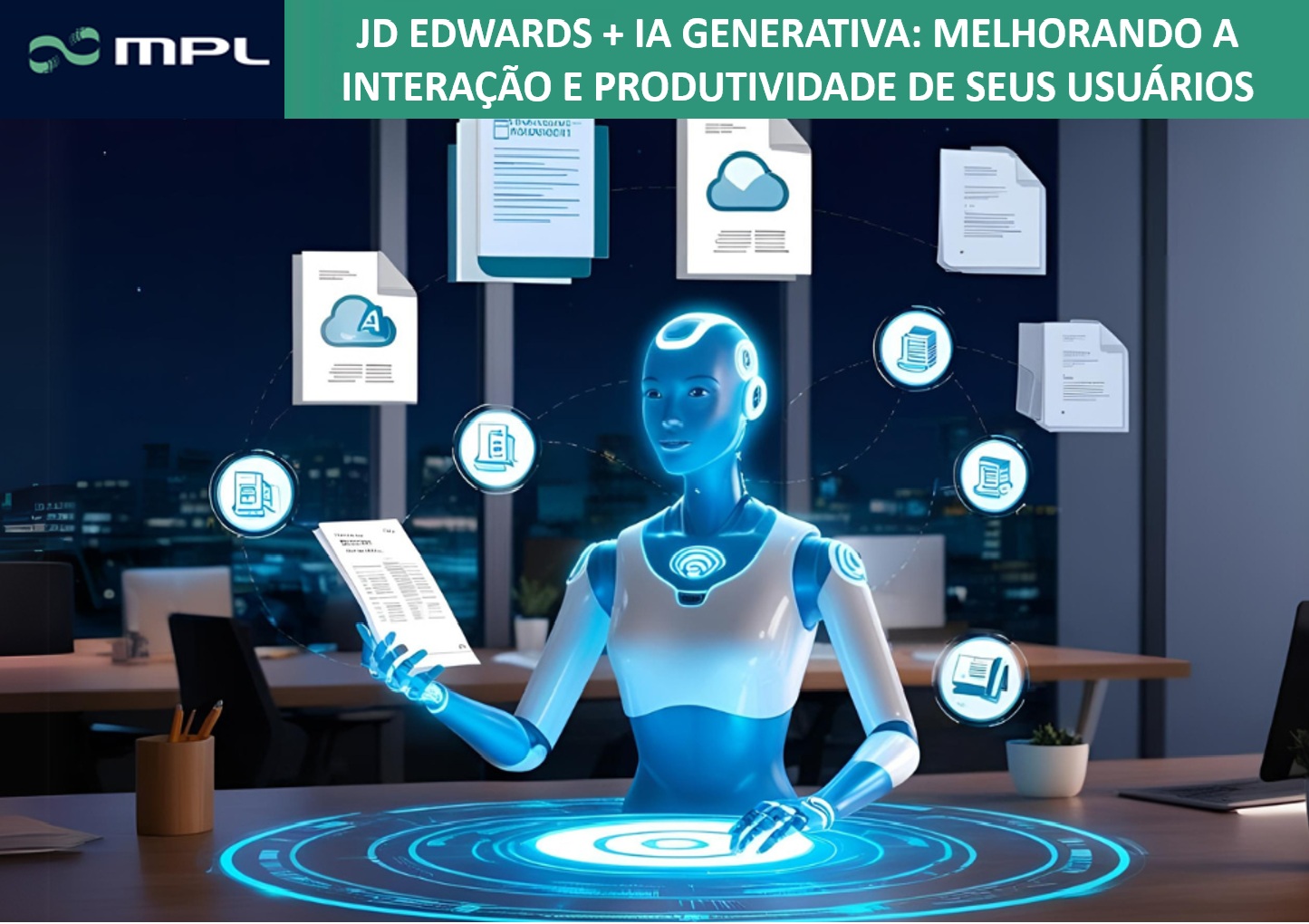
07 May How Generative AI with RAG is revolutionizing productivity in the use of ERPs
Artificial intelligence is undoubtedly one of the greatest technological revolutions of our time, comparable to the impact of the internet and smartphones. Among its most immediate benefits is the exponential increase in productivity. Generative AI models, widely used in various sectors, are capable of creating answers, summaries and analyses based on large volumes of previously trained data. This drastically reduces research, decision-making and query resolution times.
However, in the corporate environment, especially in companies that use robust ERPs such as JD Edwards, a more specific need arises: accessing personalized answers based on the organization's internal data and contexts. It is in this scenario that the concept of RAG - Retrieval-Augmented Generation - comes to the fore.
What is RAG and why does it transform the ERP experience?
RAG allows generative AI models to be enriched by personalized knowledge bases, without the need for training. In other words, AI responds based on content defined by the company: internal policies, operational flows, technical manuals, exception procedures, etc.
With this approach, a powerful application is born: knowledge agents.
Knowledge agents: the new layer of intelligence in corporate operations
Knowledge agents are intelligent digital assistants, developed with generative AI and integrated with the company's strategic information collections. They act as facilitators in users' daily lives, offering contextualized and precise answers based on the internal content already available.
Applied to the ERP, these agents become real operational guides:
- They answer questions about internal processes (for example, "how to handle a
tax exception in the purchasing module?"). - They offer instructions on how to use screens and reports ("which report
do I use it to analyze stock divergence?"). - They drastically reduce the learning time for new users and the
dependence on technical support.
A real application case: Generative AI + RAG at JD Edwards
Over the years, companies using JD Edwards have accumulated a wealth of technical and operational documentation. However, this content is rarely accessible in a practical way. It's common to see users wasting time looking for information in folders, consulting colleagues or sending emails to support.
With the application of generative AI + RAG, this reality changes. A knowledge agent trained with information from the ERP itself and internal documents can answer questions such as:
- "How do I close the monthly accounts?"
- "What are the steps to reopen a purchase order with an error of
classification?" - "How do I set the approval threshold in the financial module?"
Direct productivity gains
The time savings are significant. What used to take minutes (or even hours) now
is resolved in seconds with autonomy, precision and traceability.
What's more:
- The learning curve for new employees is shortened.
- Knowledge is standardized and democratized.
- Operational errors are reduced.
- The burden on the support team is reduced.
Digital transformation based on applied intelligence
Integrating generative AI, RAG and knowledge agents into ERP systems is not just a technical innovation... it's a strategic evolution. Companies that adopt these solutions not only gain in productivity, but create an environment where knowledge is alive, accessible and actionable.
This integration represents the next step in the digital transformation journey of companies seeking greater agility, operational intelligence and excellence in the management of their processes.


No Comments